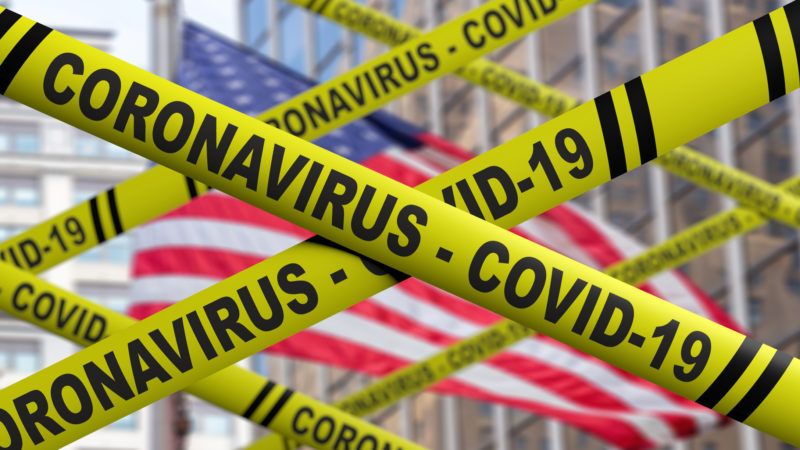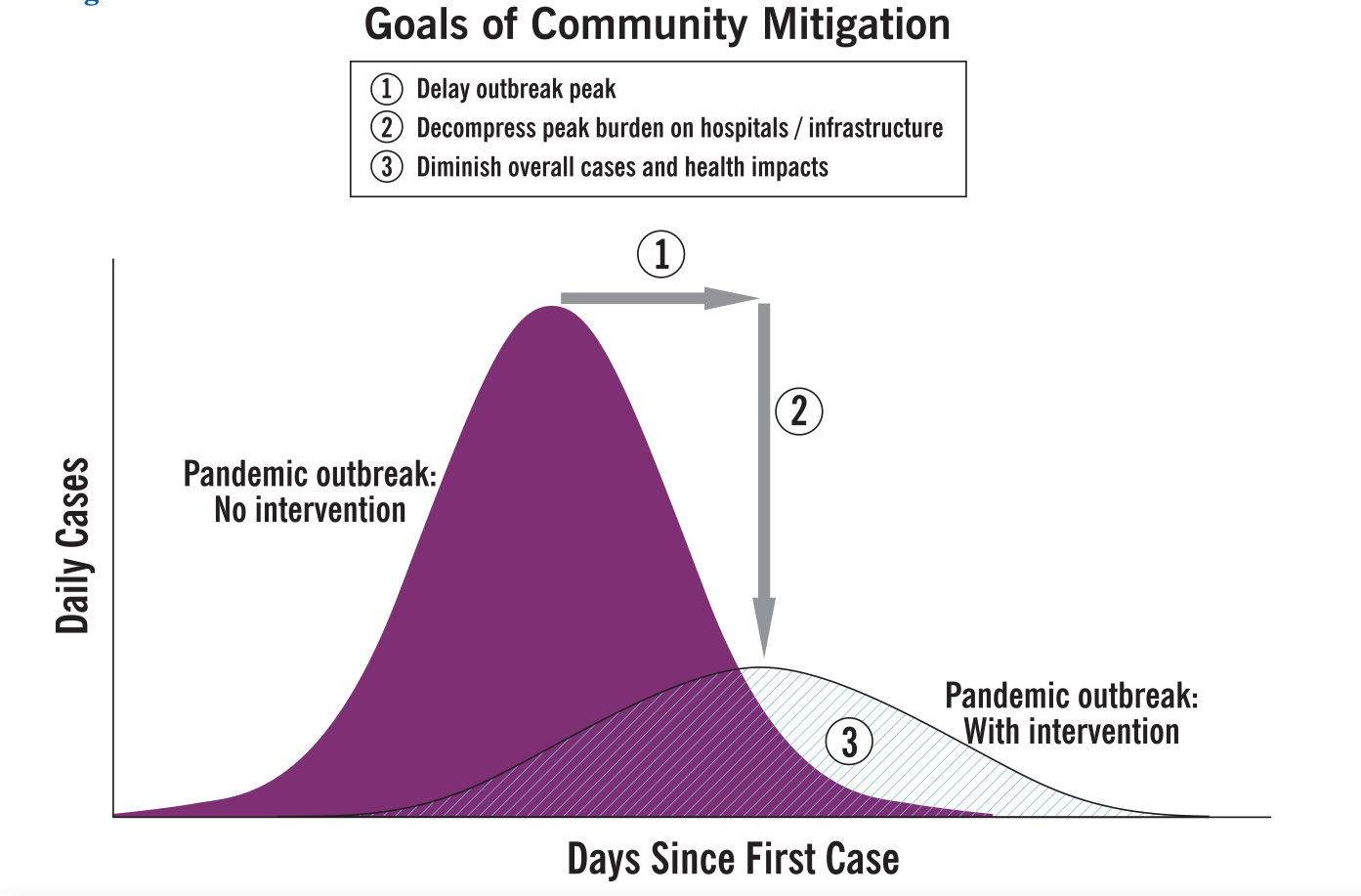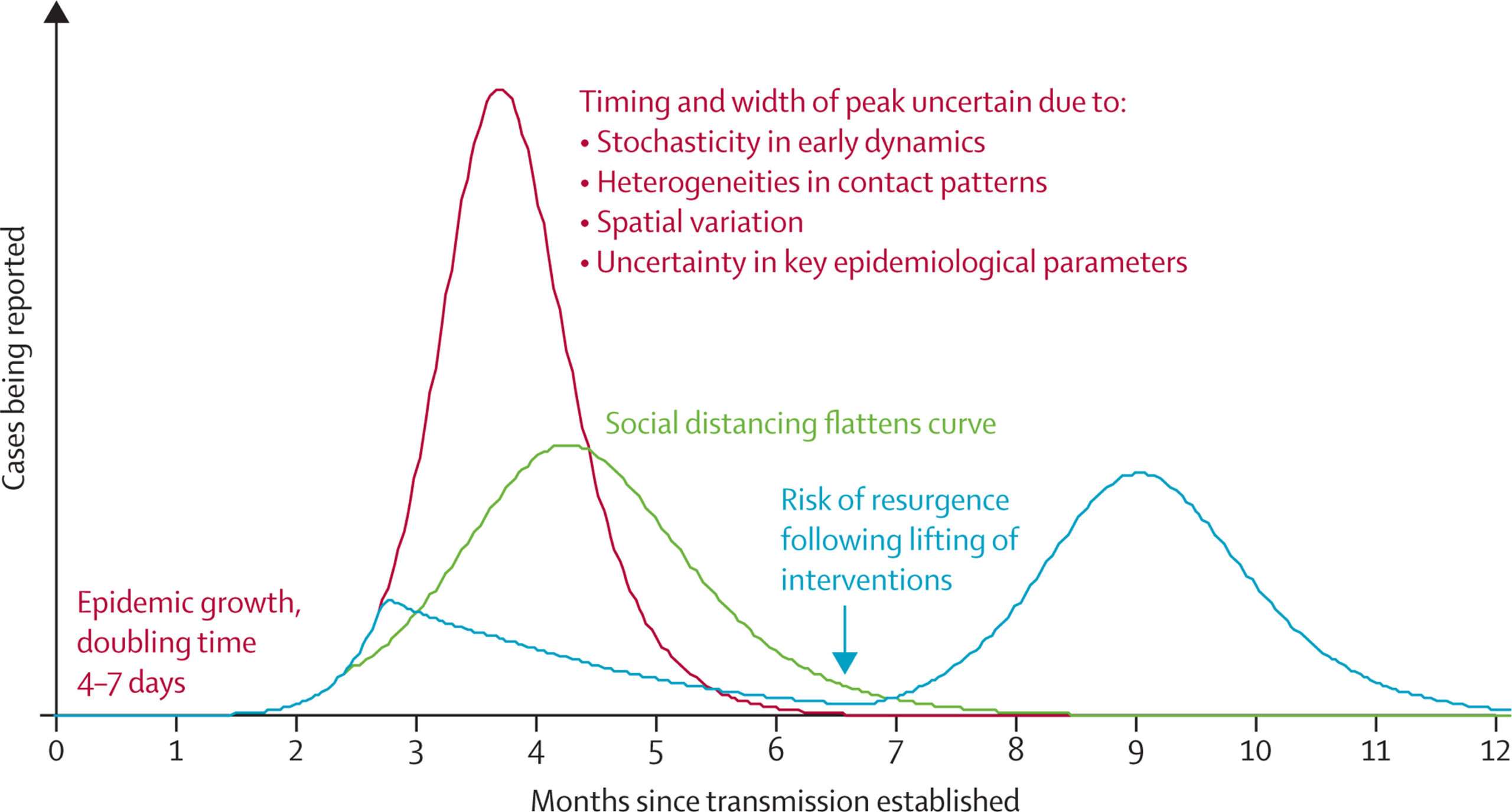Americans Act To Flatten the Coronavirus Epidemic Curve
"Individual behavior will be crucial to control the spread of COVID-19."

The COVID-19 epidemic can no longer be contained. The good news is that Americans, acting as free and responsible individuals, are already making changes in their personal lives that will likely mitigate the effects of the disease.
Since the epidemic is inevitable, the best strategy for coping with it is to flatten the curve—that is, to adopt measures that slow down the rate of infection. The number of people eventually infected will not necessarily be lower, but the goal is spread out the infections over time in order to avoid overtaxing the health care system with a flood of cases.
The Centers for Disease Control and Prevention (CDC) outlined the concept of flattening the curve in a 2007 report on pre-pandemic planning.

Chief among these tactics is social distancing—that is, avoiding crowds, staying home, and keeping six feet between yourself and other people when you do go out in public. All across the country, schools, theaters, sporting events, and other venues where large numbers of people congregate are shutting down for the next month or so.
A March 9 commentary in The Lancet analyzes how mitigation measures will influence the course of the COVID-19 epidemic. The authors point out the advantage of flattening the curve, but they also warn that there could be a resurgence of the epidemic if the changes are relaxed too soon.

"Individual behaviour will be crucial to control the spread of COVID-19," they note. "Personal, rather than government action, in western democracies might be the most important issue. Early self-isolation, seeking medical advice remotely unless symptoms are severe, and social distancing are key."
So wash your hands frequently, bump elbows instead of shaking hands, and binge-watch Netflix at home. Stay well, everyone.


Show Comments (73)